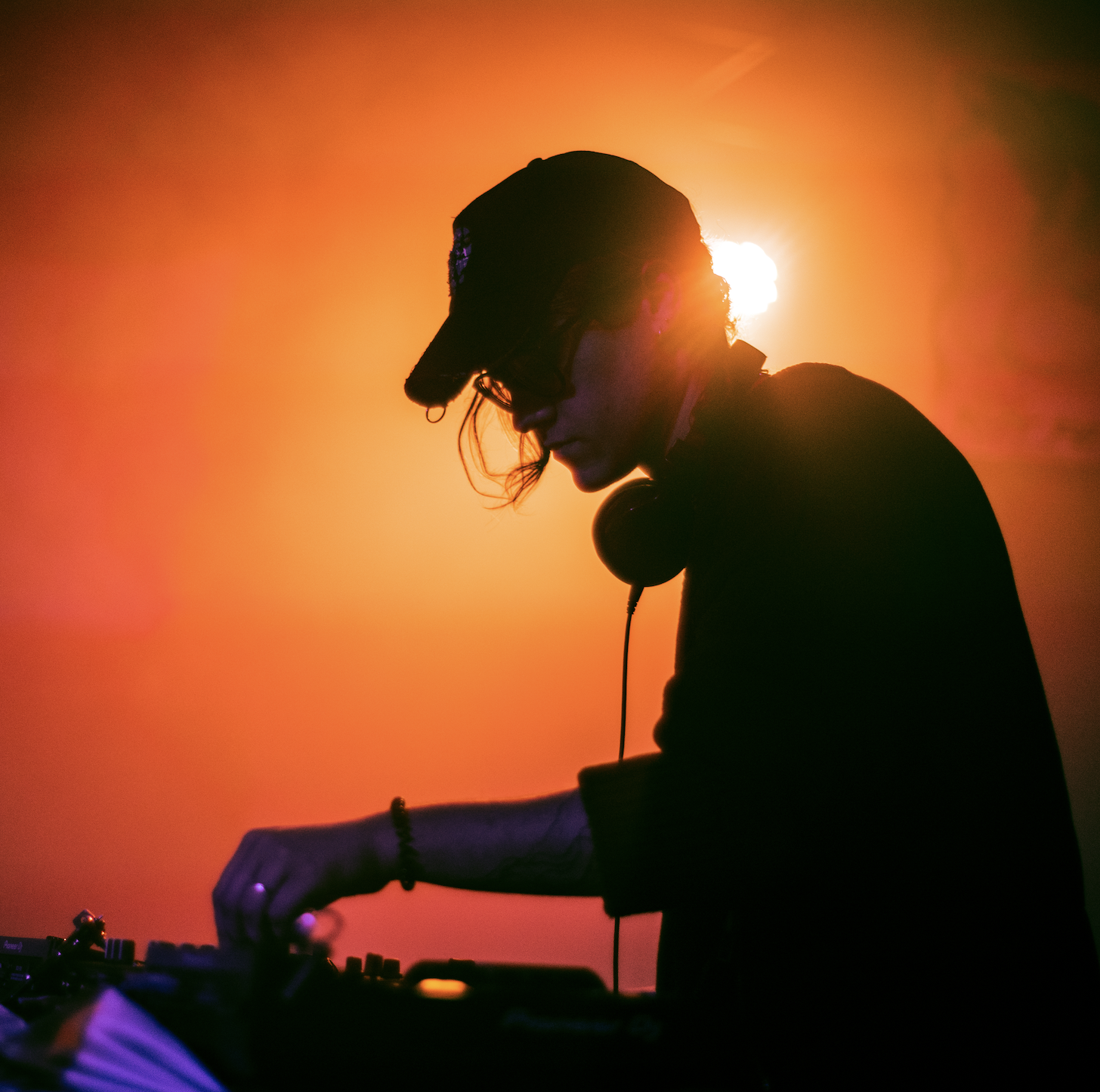KAROLINDA: “I think the Polish electronic music scene has a lot to offer.”
Published May, 2024
by Zosia Hołubowska

We continue our collaboration with the Oramics collective, focusing on the north Polish collective DEKONSTRUKT. Here you can read an interview by Zosia Holubowska with KAROLINDA, a musical project by a queer interdisciplinary artist Karo Linda, who is fascinated by bass, strong beat, and skittering rhythms. Their DJ sets are both energetic and eclectic – they don’t conform to specific musical genres but value diversity and vibrancy in the world of sounds. Since mid-2023, they have been a co-creator within the DEKONSTRUKT collective.
Please introduce yourself and tell us about your practice.
My name is Karo Linda. I come from Katowice, Poland and live in Warsaw. I’m a non-binary interdisciplinary artist, DJ, and tattoo artist. I create objects and installations, draw, and produce music, yet the largest part of my artistic practice involves creating artworks in collaboration with fungi. I mainly work with Pleurotus ostreatus (Oyster mushroom), and I’m particularly interested in the vegetative part of fungi – the mycelium. In practice, I create artworks by, for example, inoculating various cellulose containing objects (e.g., a wooden frame) with tiny parts of mycelium and documenting the process of their colonization. I also use molds to form mycelium into desired shapes, like I did with a cube for my BA diploma. I also explore the possibilities of so-called sporography (“painting” with spores) or cover the fruiting bodies with resin to make sculptures and jewelry. I keep all the fungi in my room, so you could say I live with them.
What has been a support and what has been an obstacle for you in your musical
development?
Being a queer person has been both a support and an obstacle for me. On the one hand, I’m invited to queer events, but on the other hand, it is difficult for me to break through to the heteronormative part of the scene. Certainly, valuable experiences were every B2B set I played – a lot can be learned this way. Of course, I can’t forget about the very supportive queer community and the people who introduced me to the club scene, most notably Tirruth Bone aka rosa forever, who showed me how diverse electronic music can be and taught me the basics of mixing. I’m also aware of my privilege – I support myself, but my mom bought me a controller and headphones, for which I’m very grateful. Undoubtedly, a huge obstacle to my development as an artist is my anxiety disorder, which I’ve been struggling with since I can remember.
Can you tell us a little bit about your local scene? What cool things are happening?
And what would you like to change?
In my view, Warsaw lacks inclusive clubs open to new sounds, and after the closure of Pogłos, nothing is the same. I have the impression that the same people are often booked, and there are not too many new names appearing. While there are interesting and inclusive events such as HYPER4YA or Ciężki Brokat, there are still not enough of them, and the scene remains dominated by cis hetero men.
What have you been glowing about lately? Maybe you discovered something new that changed your approach to music or DJing?
From recent discoveries, I’m really into labels like Kindergarten Records from New York and Failed Units from Manchester. I often listen to artists such as Ziyiz and Stolen Velour, and I’ve featured their tracks in my latest mix. In addition, I’ve been delving into Jersey club – I love tracks by artists like Constantine, styn or UNIIQU3.
What are your thoughts on the diversity of Polish electronic and club music?
I think the Polish electronic music scene has a lot to offer. Labels like Pointless Geometry, 00effort, and BFF Music put out interesting and diverse releases. As for the club scene, I have the impression that it is still dominated by techno and other 4/4 genres. Fortunately, there are also more and more events centered around wide-ranging bass music. You can see how the musical awareness of the audience is slowly changing, and people are increasingly open to other rhythms and sounds in clubs. I’m glad that as a member of the DEKONSTRUKT collective, I have a real influence on this change.
What are your upcoming musical and artistic plans?
I have a couple of mixes to record, the one for Oramics being my first club mix in over a year. Recording it was a definite breakthrough, and I believe it will only get easier now. I also want to release a debut EP, with one track included in the mix I recorded. In terms of non-musical work, I’m planning a drawing performance at the Rotacyjny Dom Kultury in Jazdów this summer, continuing to submit artworks to open calls, and pursuing fruitful collaborations with fungi in new projects.
Read the interview with DEKONSTRUKT member DiV4 here and the interview with ANDROGIENIA on the Oramics website.
Photo: Laura Polanska
This article is brought to you as part of the EM GUIDE project – an initiative dedicated to empowering independent music magazines and strengthen the underground music scene in Europe. Read more about the project at emgui.de.
Funded by the European Union. Views and opinions expressed are however those of the author(s) only and do not necessarily reflect those of the European Union or the European Education and Culture Executive Agency (EACEA). Neither the European Union nor EACEA can be held responsible for them.